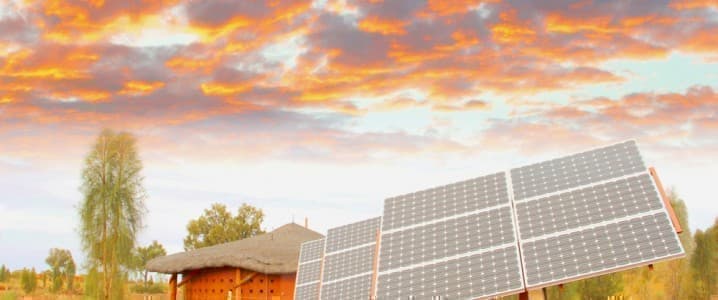That Africa has massive potential for renewable energy generation is an undoubted fact that has, however, failed to garner a lot of attention. The reason is simple enough: realizing this potential has been challenging. Yet, there have been ways in which solar power has been deployed in Africa—and other parts of the world—to provide literally vital services.
Africa has the potential for 1,000 GW of solar power. Its actual installed capacity as of 2020, however, is barely 10.58 GW. Yet, according to the International Renewable Energy Agency, this is a significant increase on the 211 MW of solar power that the continent had as of 2011. From 211 MW to 10.58 GW is quite solid growth even though solar installations are far from a common sight in African countries.
It needs noting that a lot of the solar power capacity in Africa is in Nothern African countries such as Egypt, Morocco, and Algeria, as well as 5 GW in South Africa. In Sub-Saharan Africa, solar installations are few and far between. As are electric grids.
Solar and wind farms generate electricity by capturing the light of the sun or the energy of the wind and converting it into electricity. This electricity then needs to be transmitted to where it will be used or stored. Yet many African countries, especially in sub-Saharan Africa, simply lack transmission infrastructure extensive enough to accommodate utility-scale solar and wind installations economically.
Fortunately, one of the advantages of solar power technology over some other alternatives is the fact it could be used off the grid. This is one area, in fact, where solar shines.
It is also the area where solar can save lives.
In 2017, the International Renewable Energy Agency reported there were 21,000 healthcare facilities globally that relied on solar power for their electricity, with most of them small clinics, many of them in sub-Saharan Africa. The report also mentioned product innovations such as the solar suitcase developed by a nonprofit organization that involves a portable selection of medical equipment powered by a solar panel.
HELP BUILD SOLAR PANELS THAT SAVE LIVES!
Access to electricity is something that many in developed and developing nations consider their birthright, like access to food. Yet, for a lot of people in Africa, access to electricity is non-existent. There are more than 1 billion people without access to electricity in the world, and many of these people live in sub-Saharan Africa. Enter off-grid solar.
Off-grid solar systems could be small installations that can power, say, a fan or a TV, or the abovementioned solar suitcase. Because they are convenient and increasingly affordable, the off-grid solar system market has boomed in recent years.
According to a 2020 report by the World Bank, the global off-grid solar market had reached a size of $1.75 billion, with 420 million users, most of whom live in sub-Saharan Africa. In some African countries, less than 50 percent of the population has access to electricity, according to the World Bank, which makes alternative sources of power all the more vital.
What's more, chances are the importance of off-grid solar systems would continue to be fundamental in the future, too. The reason is that grid expansions into rural regions are unlikely to suddenly become profitable, meaning investors in such projects are non-existent. The chief executive of Intelligent Power Generation, a cleantech company, Toby Gill, told Oilprice earlier this year.
"It is not the p/kWh of wind, solar, or hydro that is the limiting factor, nor does it come down the mixture of wind, solar, energy storage and fuel-based power to deliver secure and reliable power," Gill said. "It is the fact that the cost of deploying and installing the electricity infrastructure is too high relative to the revenue potential of the customers."
It's all about the cost and the profit, ultimately. While world leaders agreed last week in Glasgow to help poorer countries with the energy transition, they steered clear of making specific commitments, such as investing in grid expansion in sub-Saharan Africa. Unfortunately, this appears to be an investment unlikely to pay off.
ADVERTISEMENT
Investment in off-grid solar systems, on the other hand, seems like it is set for growth. There are simply too few alternatives for electricity in the poorest regions of the world. Diesel generators are a common source of electricity, but with the price of oil rallying, it could become unaffordable for many. The prices of solar panels are also on the rise, in all fairness, due to the fallout from the pandemic that wrought havoc on global supply chains, and this has affected sales of off-grid solar systems. Yet sooner or later, things will go back to normal, once again because of the lack of many other alternatives.
Utility-scale solar farms are beginning to look problematic in some parts of the world, drawing opposition from environmentalists due to things like land use and heat production. Off-grid portable solar systems, however, do not have any of these drawbacks. These systems can literally save lives in places where electricity is a luxury rather than a given.
By Irina Slav for Oilprice.com
More Top Reads From Oilprice.com:
- Brits Google ‘Energy Bill Help’ As Energy Suppliers Go Bankrupt
- LNG Tanker Rates Reach All-Time Highs On Soaring Demand
- Mapping The Rise Of Solar Energy


















